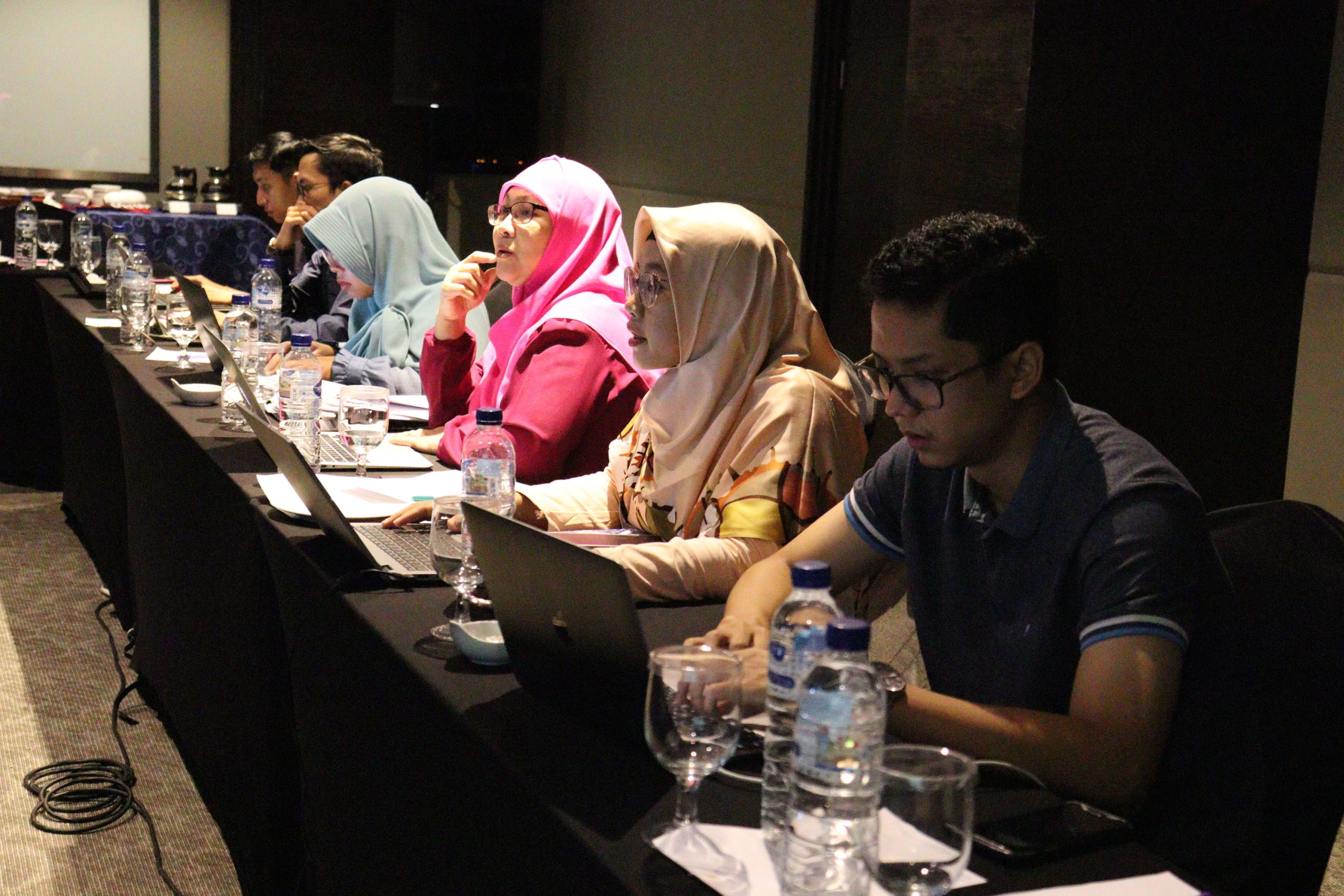Actualize Unram’s Work Quality Culture through the Formulation and Completion of Academic and Non-Academic Internal Quality Assurance Standard Devices

Mataram, University of Mataram – In order to ensure internal academic and non-academic quality within the University of Mataram (Unram), the Quality Assurance and Educational Development Institute (LPMPP) of Unram held the Formulation and Completion of Unram’s Academic and Non-Academic Internal Quality Assurance Standards on July 5-7, 2024 at the Astoria Hotel.
The Head of LPMPP, Dr. Ir. Sitti Latifah, M.Sc.F., IPU said that currently the work team is preparing Unram’s internal quality assurance system in 2024 in line with the Regulation of the Minister of Education, Culture, Research and Technology (Permendikbud) Number 53 of 2023 Regarding Higher Education Quality Assurance in which there are several parts related to national standards of higher education which regulate academic and non-academic education standards.
Academic education standards include education, research and community service. Non-academic standards include arrangements related to facilities, infrastructure, student affairs, including organizational standards.
“The second part is related to the quality assurance system, especially the internal quality assurance system that must be implemented in all state universities and we must have a device. We already have a 2021 device and we are updating and improving it as well as adjusting it to new instruments and data,” said Dr. Latifah.
The Head of LPMPP further explained that the third part of the device is external quality assurance, which is accreditation. Unram is currently making a new SPMI device so that it is in line with Permendikbud Number 53 of 2023 and in line with the intended accreditation standards both national and international.
“We are currently making SPMI policy first, how the quality assurance system is implemented at Unram. We also make implementation guidelines because this SPMI system must go through the process of determining, implementing, evaluating, controlling and improving. We also have to make standards and this is what takes a long time because these standards include educational standards and the standards of undergraduate, postgraduate, and doctoral degrees are different,” she concluded.
Dr. Latifah mentioned that in terms of research, there have been adjustments and improvements that the researchers are not only lecturers but there are researchers from outside and students who are integrated. The Head of LPMPP explained that all of this aims to realize a culture of quality work within Unram.
“There are many non-academic standards that are applied, this aims to achieve a culture of quality work within Unram where everyone prioritizes and orientates towards quality,” said Dr. Latifah.
The last tool that is equally important is related to documentation procedures.
“Documentation procedures that follow technological advances. In the past, documentation was usually manual, now with the development of information technology, a system must be built. So now we are identifying all systems in Unram whether they can record all standards and monitor them because they must be analyzed and so on. In the future, a quality culture will be implemented so that everything is decided based on data analysis with a standardized determination process,” she concluded.
Dr. Latifah also appreciated the hard work done by the university work team that has conducted monitoring, evaluation, developed monitoring and evaluation within Unram, and developed the system. The next step is that the university work team will train the faculty academic work units because the accreditation standards of each study program are different from one another so that in the future all faculty work units are required to make standards and are assisted by the university work team.
This set of internal academic and non-academic quality assurance standards is planned to be implemented after socialization in August and then implemented in the coming semester.
